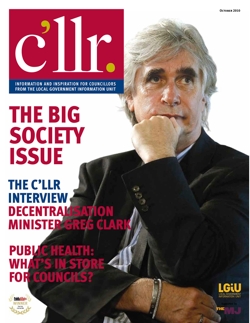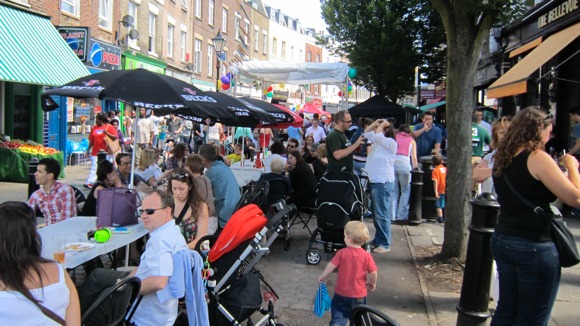 In a bid to check whether there really are no new ideas I’ve started re-reading David Osborne and Ted Gaebler’s Reinventing Government.
In a bid to check whether there really are no new ideas I’ve started re-reading David Osborne and Ted Gaebler’s Reinventing Government.
It’s probably not that well-known a book today, but it was the first ‘fad’ book I remember – and having seen other titles like Nudge come to prominence (only to hear it dismissed recently in favour of Connected) along with my recollection that there’s a lot in it that is relevant to the Big Society agenda it has pushed itself back to the top of my ‘to read’ list.
As fads go it has come and gone and is now largely unremarked. Perhaps because as a species we are always looking for new and shiny (quite rightly, we don’t develop if we meekly accept what already exists and don’t ask if there could be more). Perhaps part of the reason is that it was published in 1992 before the widespread use of the internet that would later propagate ideas and new thinking. Instead, it would be referenced in the pages of newspapers, particularly after the inauguration of Bill Clinton as US President in 1993 when it was deemed to inform his and Al Gore’s thinking. Indeed, the dust jacket has a quote from Clinton, although then as a mere presidential candidate and state governor.
But re-reading I’m discovering why it created such a buzz in 90s America. It’s a genuinely exciting book and while the ideas may now be tried and tested (and perhaps found wanting) seeing them all together in one place leaves one the feeling that with an open mind and willingness to innovate anything is possible. Of course, when I first read it I did so with only curiosity, not with any ability to do anything with the contents (and I’m not in that much a different position when re-reading it), but now I read it seeing how some of its contents could work in the UK.
The basic premise of the book was that across America arms of government were discovering new ways of doing things that were more effective; improving quality, reducing cost or both. Some were fundamental re-thinks of culture and organisation, some where small tricks. In fact just a few chapters in you see things that have been echoed in books and ideas that have come since and been hailed as new and innovative, except they’d already been trailed in a book written nearly 20 years ago using examples from the 80s.
Throughout there are examples that would have been at home in the pages of Nudge, Connected or The Wisdom of Crowds. Indeed, reading it you find ideas that subsequently made the pages of Ken Livingstone’s first mayoral manifesto (it basically describes Safer Neighbourhood Teams) or the 2010 Conservative manifesto (I realised while reading it that the introduction I was reading about one of inspirations for free schools).
But what has really struck me is that the book could so easily be re-titled with a reference to the Big Society. The very first chapter “Steering, rather than rowing” establishes a principle that the role of government is not necessary there to provide every service, but to provide the leadership and support to ensure that it is provided. A recurrent theme is that where governments of any level have given up control and instead empowered communities everyone has benefited, through better services, feelings of empowerment, reduced crime or just lower taxes.
Not all the experiments succeeded – that goes without saying – I followed up on a story contained in there about what was, effectively, a housing estate taken over by residents to discover it ‘failed’ eight years after the book’s publication. But the failure came after it had trebled rates of rent collection, dramatically cut unemployment and teenage pregnancy and successfully tackled a drug problem that the police had been unable to permanently deter: all because they were empowered to work as a community to tackle their own problems, rather than existing as clients of their city government. Given the huge savings that such changes would bring (and continue to bring) it’s arguable that it wasn’t a failure at all.
But, of course, innovation is not about guaranteed success, but about daring to think that things could be better. Sadly when this was published in the 90s UK local government had hardly any flexibility to innovate. But now things are different, I wonder if it’s time for some innovative councils to dig out some copies of Reinventing Government, remind themselves of the ideas that have been forgotten and, instead of seeing residents as clients, think about how they can be put in charge again.

 The following is the text of an article I wrote for the
The following is the text of an article I wrote for the  Continuing the Big Society theme from yesterday my interest was piqued by an article by Philip Johnston in yesterday’s Telegraph (
Continuing the Big Society theme from yesterday my interest was piqued by an article by Philip Johnston in yesterday’s Telegraph (